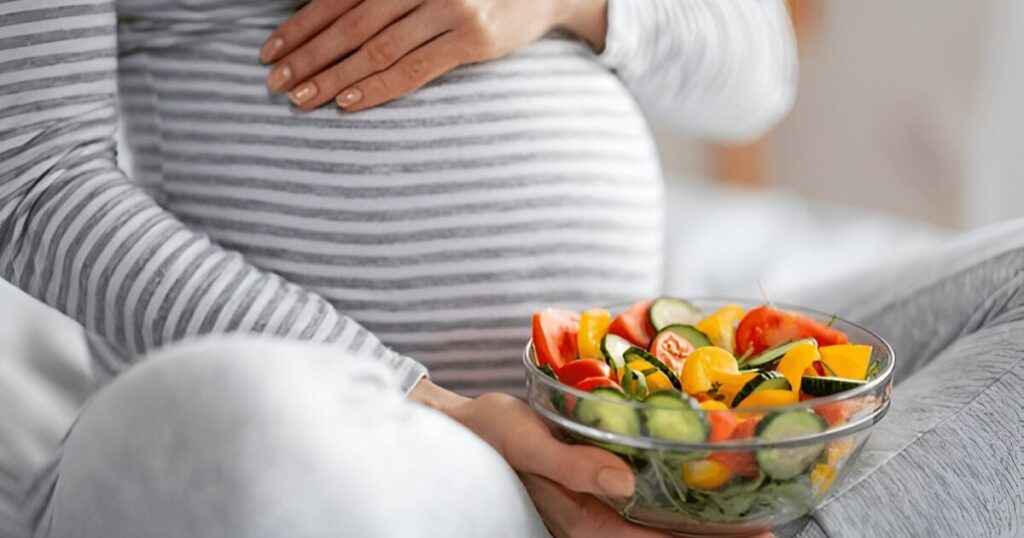During pregnancy, the basic and usual principles of healthy eating remain the same. This includes eating plenty of fresh fruits, vegetables, healthy fats, lean protein and whole grains. However, the special phase that pregnancy is, it is obvious that certain special dietary considerations are required by women when they conceive. When a woman is pregnant, she needs to have extra protein, iron, calcium and vitamins.
This can be attained by eating different kinds of whole grains, lean meat, seafood and plant-based foods. Therefore, during pregnancy, it is important to consume a balanced and nutritious diet to support the health and development of both the mother and the growing fetus.
Vital Foods During Pregnancy
Here are some foods that are typically recommended to include in your pregnancy diet:
Folate-Rich Foods
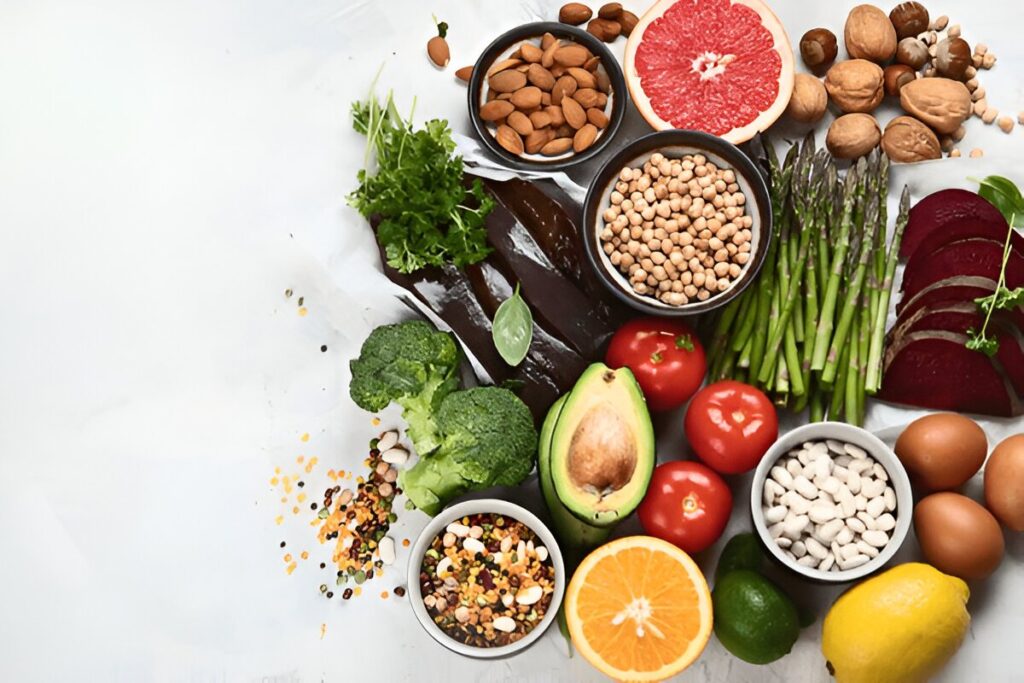
Folate or folic acid is crucial for preventing neural tube defects in the developing fetus. Good sources of folate include leafy green vegetables, citrus fruits, beans and fortified cereals
Calcium
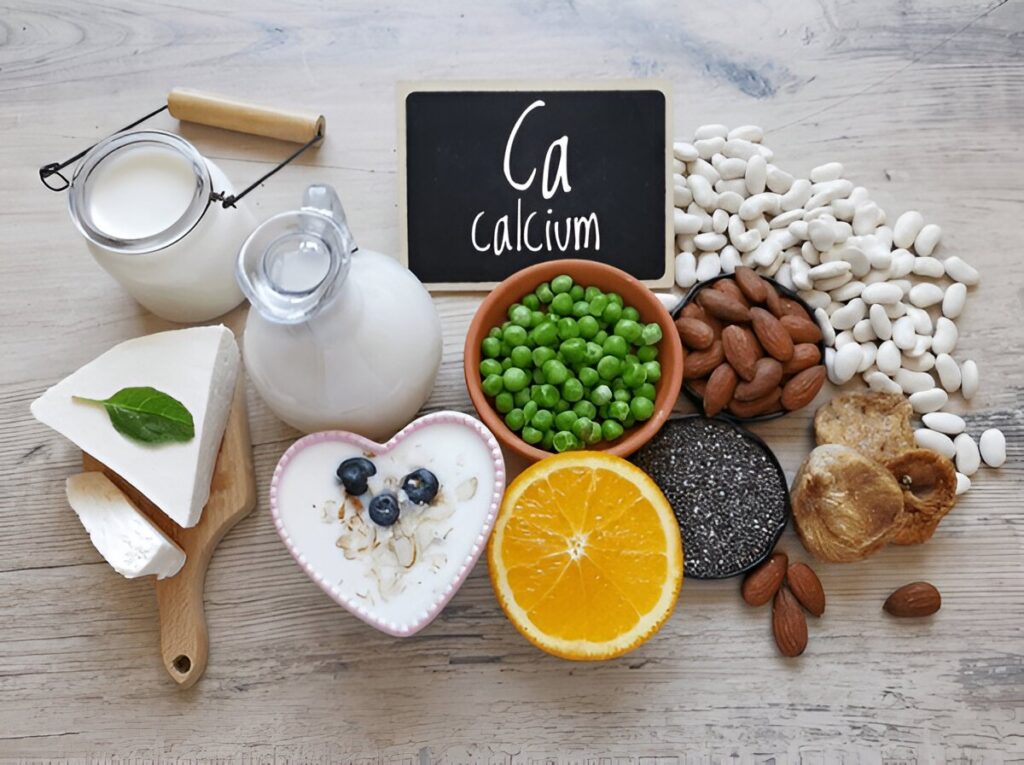
Calcium is crucial for a pregnant woman as it helps in the baby’s teeth and bone development. Some of the best sources of calcium include dairy products like milk, cheese and yogurt.
Role of calcium during pregnancy: maternal and fetal needs. Nutrition reviews, 70(7), pp.397-409). If you are lactose intolerant or vegan, consider calcium-fortified plant-based milk and leafy greens like kale and collard greens.
Iron-rich foods
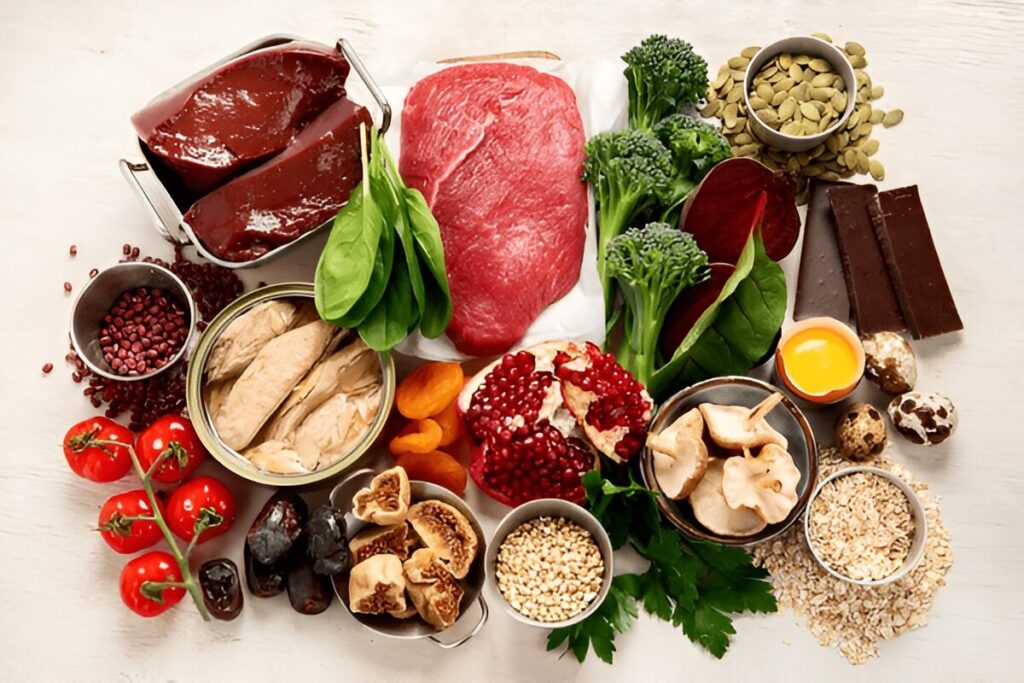
Iron helps prevent anemia and supports the increased blood volume during pregnancy. Good sources of iron include lean meats, poultry, fish, fortified cereals, beans and spinach.
Protein
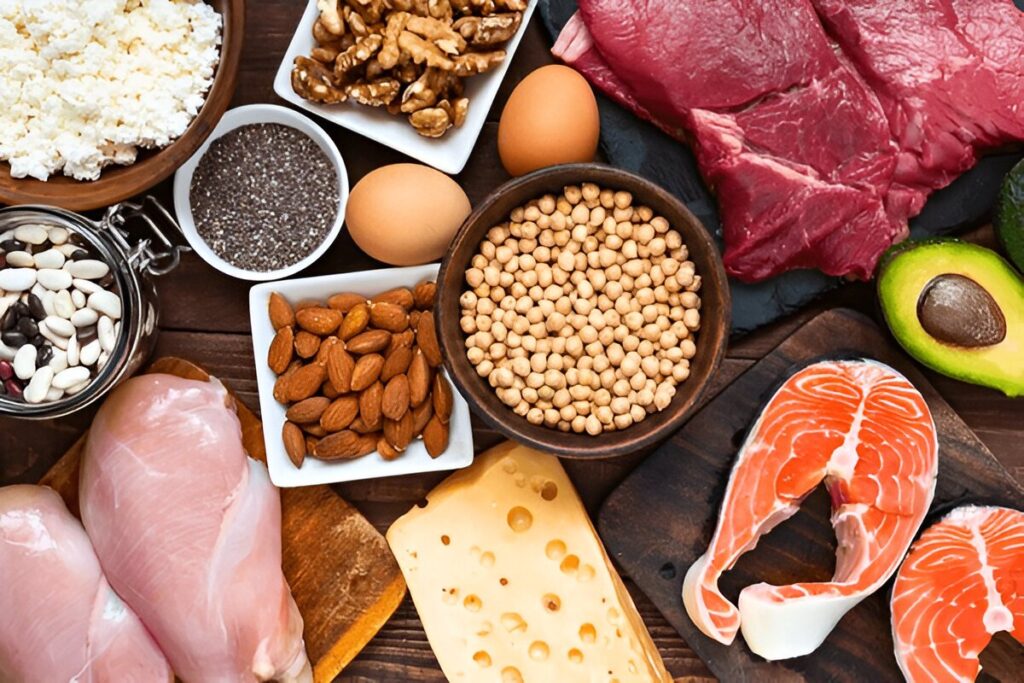
Protein is essential for the development of the baby’s organs, muscles and tissues. Include lean meats, poultry, fish, eggs, tofu, legumes and nuts in your diet.
Fiber
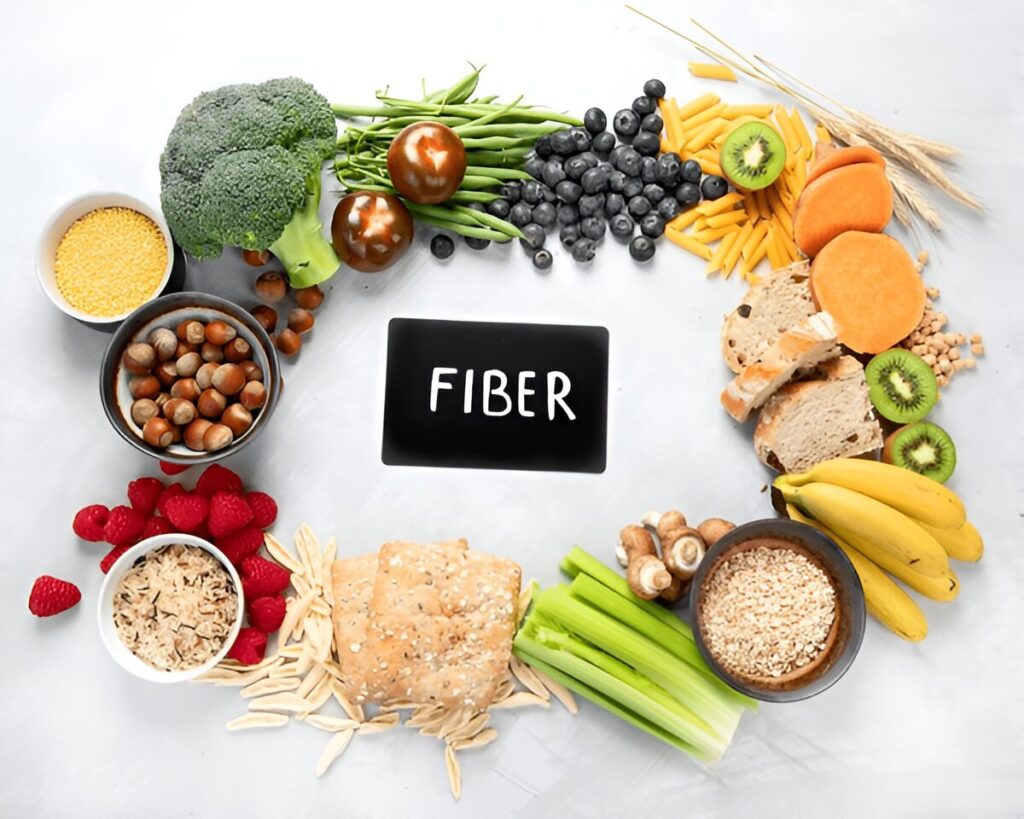
High-fiber foods can help prevent constipation, a common issue during pregnancy. High-fiber diet during pregnancy characterized by more fruit and vegetable consumption. Some of the best sources of fiber include vegetables, fruits, whole grains and legumes.
Healthy Fats
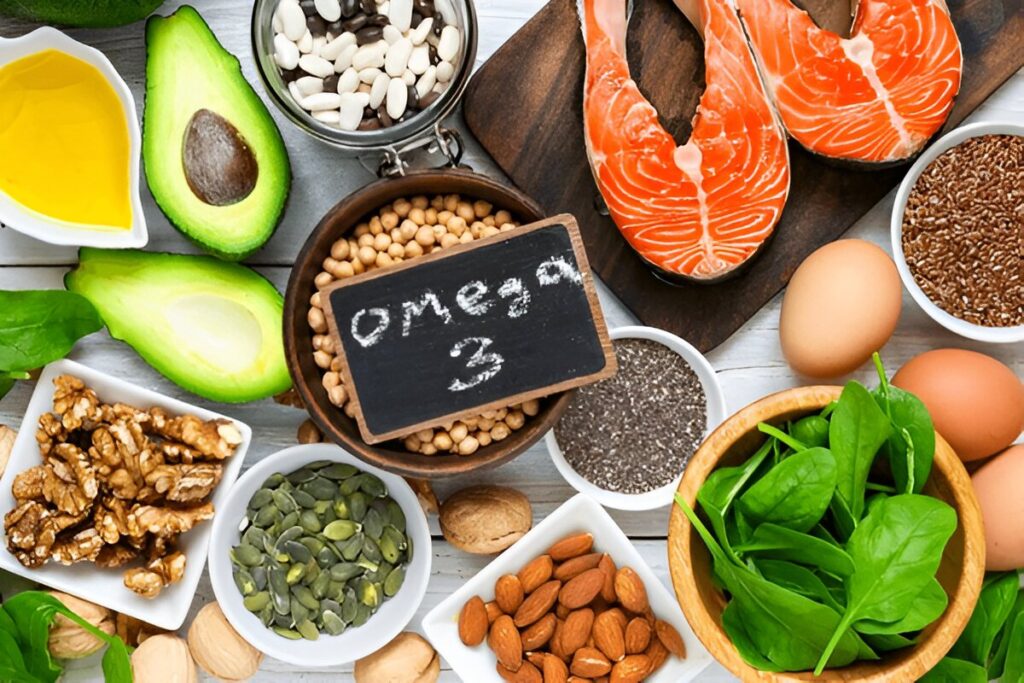
Omega-3 fatty acids are important for the baby’s brain and eye development. Sources include fatty fish like salmon and mackerel, flaxseeds, chia seeds and walnuts.
Dairy or Dairy Alternatives
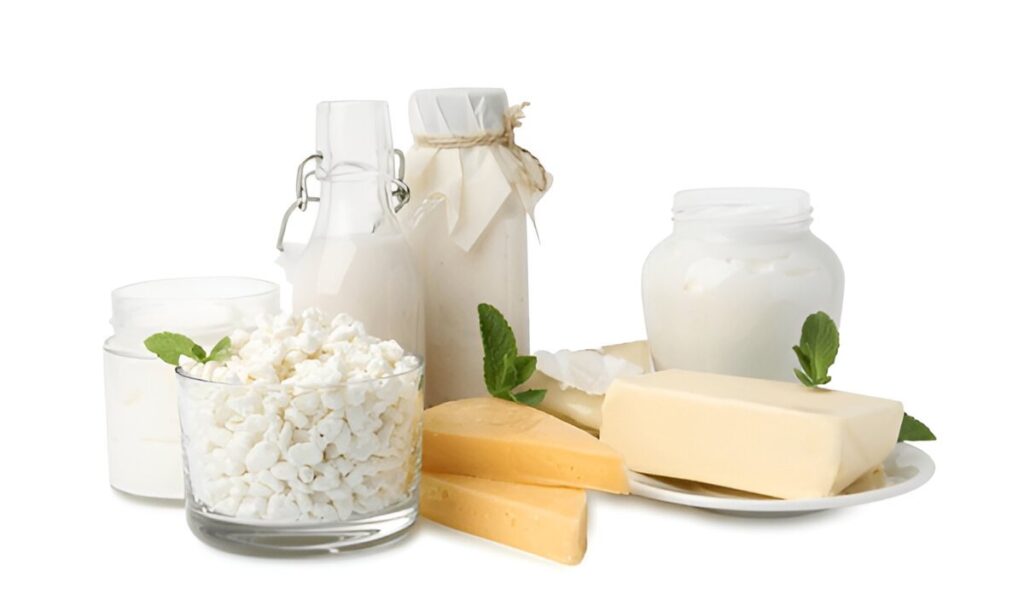
Dairy products or fortified plant-based alternatives are good sources of calcium and protein.
Fruits and Vegetables
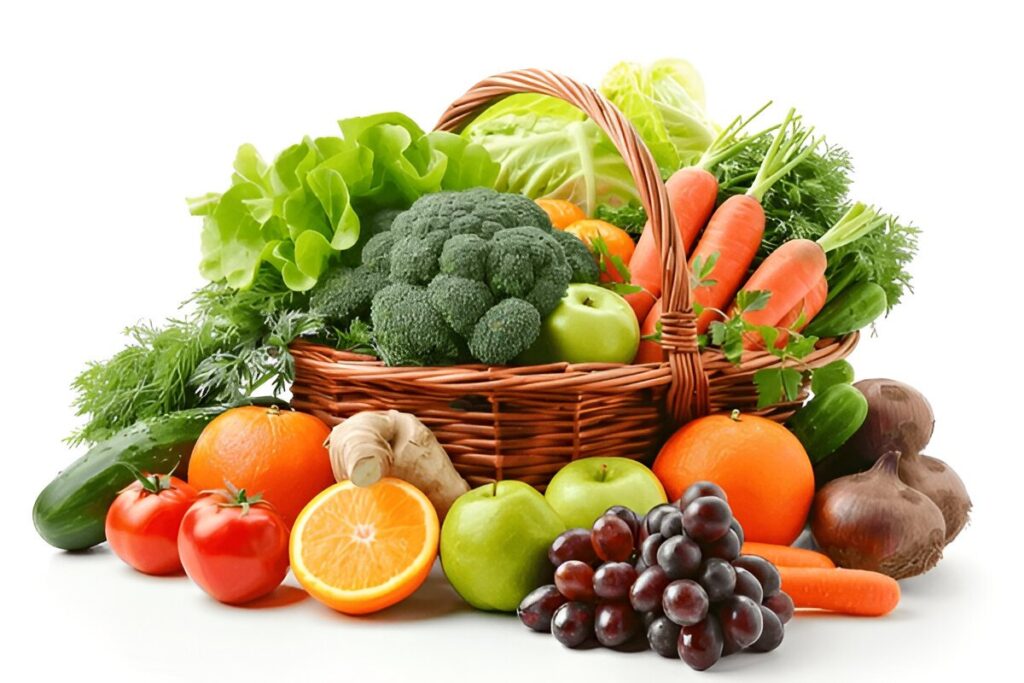
A variety of colorful fruits and vegetables provide essential vitamins, minerals and antioxidants. They are also a good source of fiber. Associations of consumption of fruits and vegetables during pregnancy with infant birth weight or small for gestational age births: a systematic review of the literature. Aim to eat a wide range of fruits and vegetables to get the required nutrients.
Hydration

During pregnancy, it is imperative for a woman to stay well-hydrated. Water is the best choice, but you can also include herbal teas and limit caffeine intake.
Small, Frequent Meals
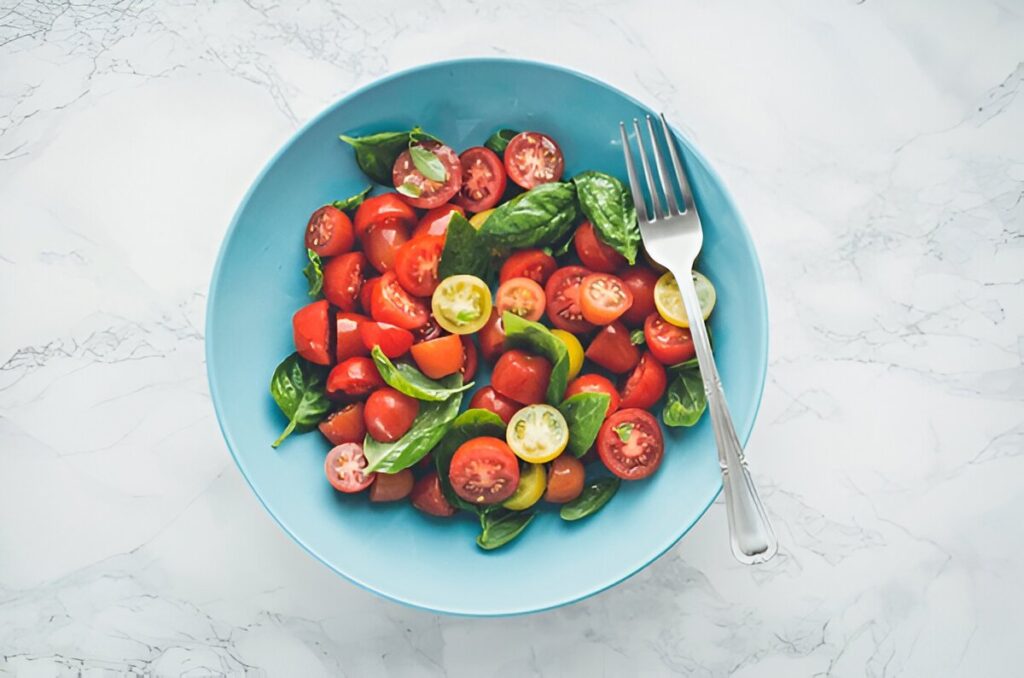
Eating small, frequent meals can help manage nausea and maintain stable blood sugar levels.
Supplements
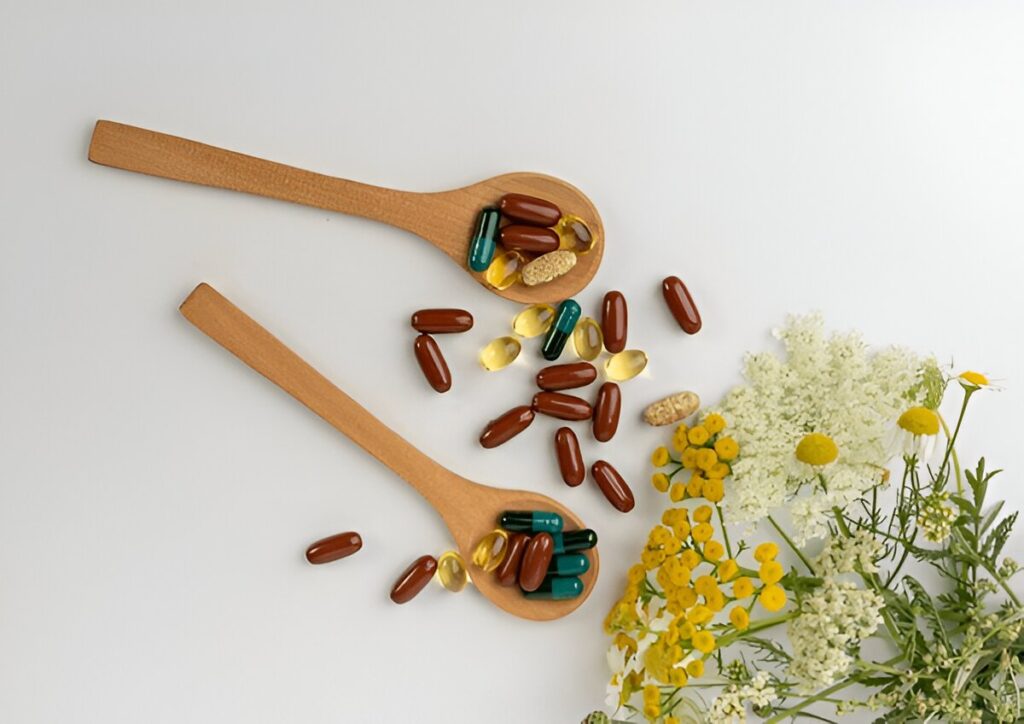
In addition to a balanced diet, healthcare providers may recommend prenatal vitamins to ensure that the pregnant woman is getting all the necessary nutrients, including folic acid, iron, calcium and other vitamins and minerals.
Which Foods to Avoid During Pregnancy?
During pregnancy, it is important to be mindful of your diet to ensure the health and safety of both you and your developing baby. There are several foods and substances that should be avoided or limited during pregnancy due to potential risks. Here is a list of foods to avoid during pregnancy:
Raw or Undercooked Seafood

Avoid raw fish, sushi, sashimi and seafood like oysters and clams, as they can carry harmful bacteria and parasites.
High-Mercury Fish
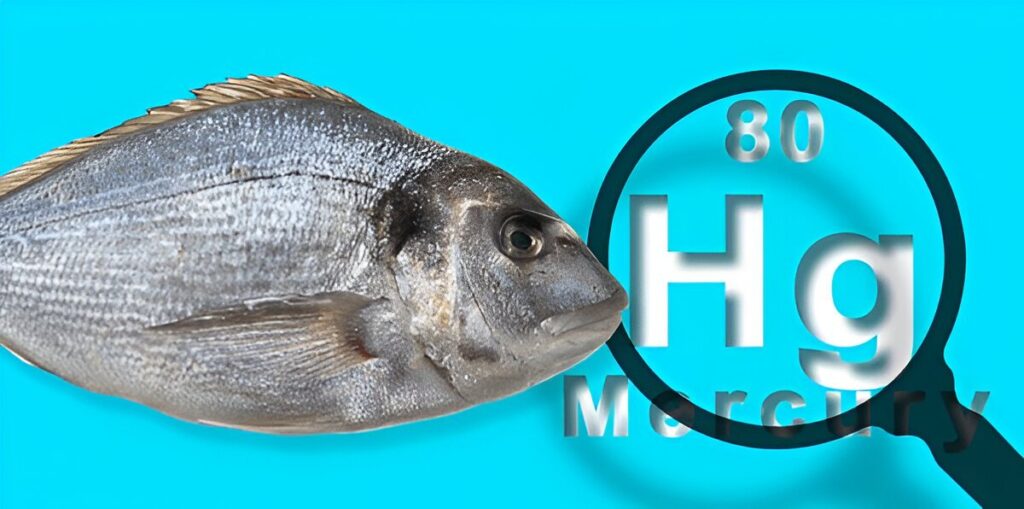
Certain fish, such as sharks, swordfish, king mackerel and tilefish, contain high levels of mercury, which can harm the developing nervous system of the fetus. A qualitative study of fish consumption during pregnancy. It is important to know about these foods to avoid during pregnancy. Opt for low-mercury fish like salmon, trout and shrimp instead.
Unpasteurized Dairy Products
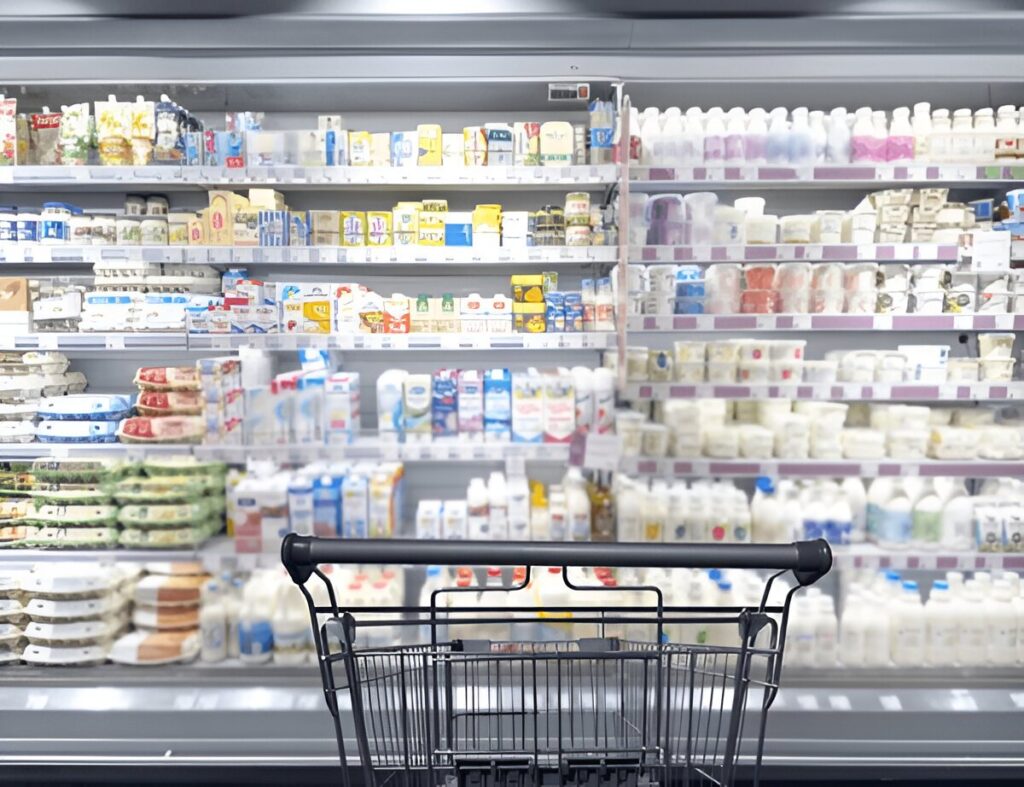
Avoid unpasteurized milk, cheese and other dairy products, as they can contain harmful bacteria such as Listeria.
Undercooked or Raw Eggs
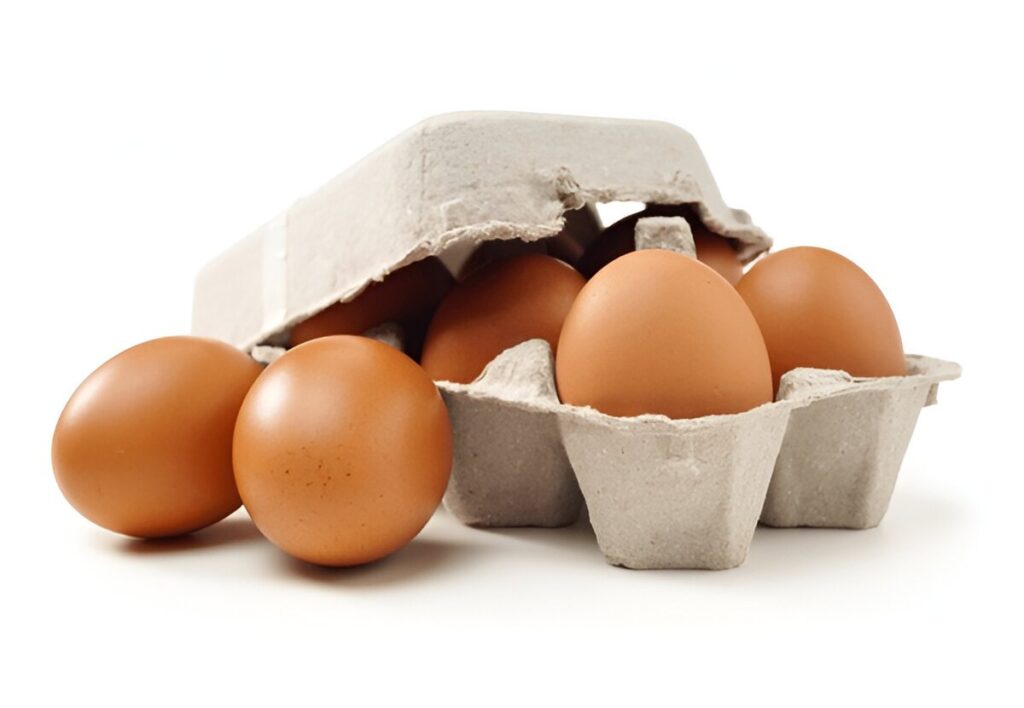
Foods to avoid during pregnancy also include raw or undercooked eggs as they may carry Salmonella bacteria. Evidence-based prenatal care: Part I. General prenatal care and counseling issues. Be cautious of dishes like homemade Caesar dressing, hollandaise sauce and raw cookie dough.
Deli Meats and Hot Dogs

Deli meats and hot dogs can be contaminated with Listeria, a bacterium that can cause miscarriage or harm to the baby. If you choose to consume them, heat them until they are steaming hot to reduce the risk.
Raw Sprouts
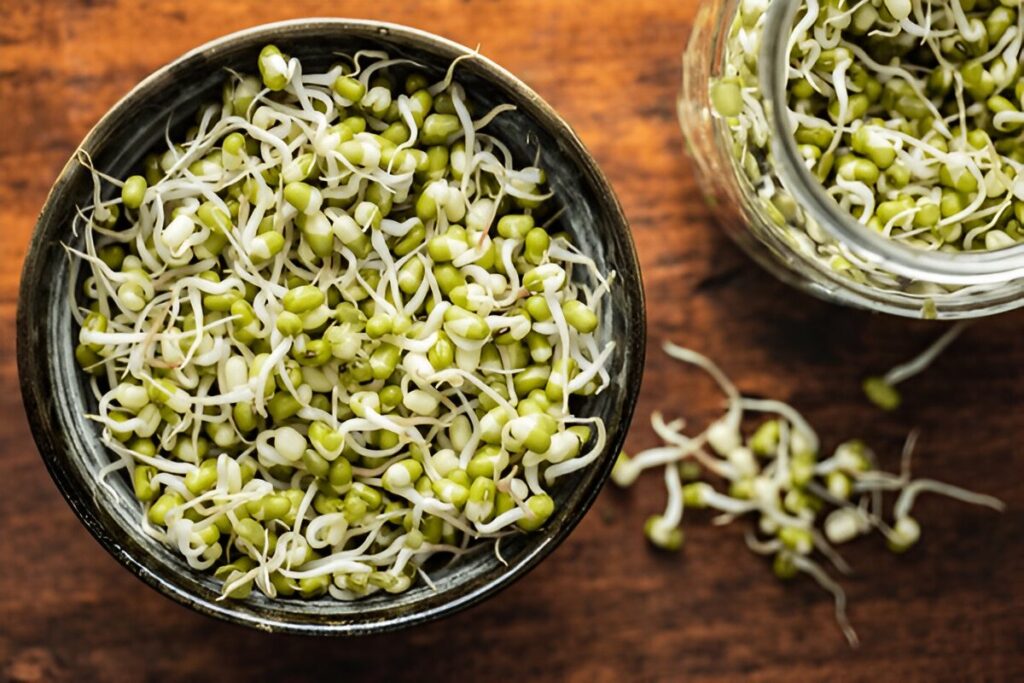
Raw sprouts, including alfalfa, clover and radish sprouts can harbor harmful bacteria. You can choose cooked sprouts as they are considered to be a safer alternative.
Excessive Caffeine
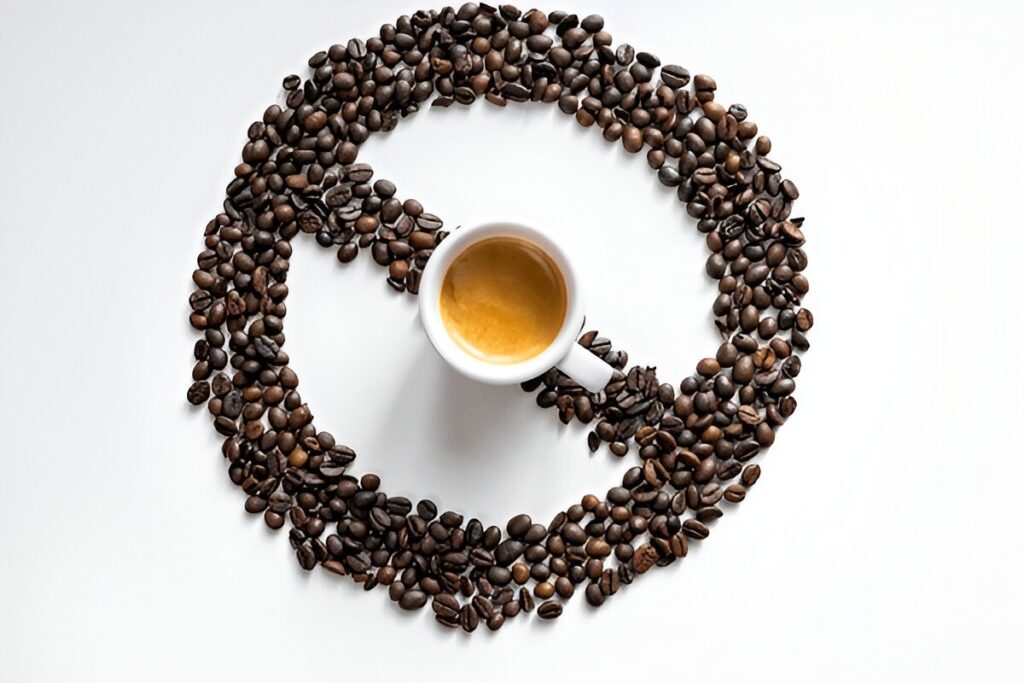
High caffeine intake during pregnancy has been associated with an increased risk of miscarriage and preterm birth. Limit your caffeine consumption to no more than 200-300 milligrams per day, which is roughly equivalent to one 12-ounce cup of coffee.
Alcohol

It is best to avoid alcohol completely during pregnancy, as it can lead to fetal alcohol syndrome and other developmental issues.
Unwashed Produce
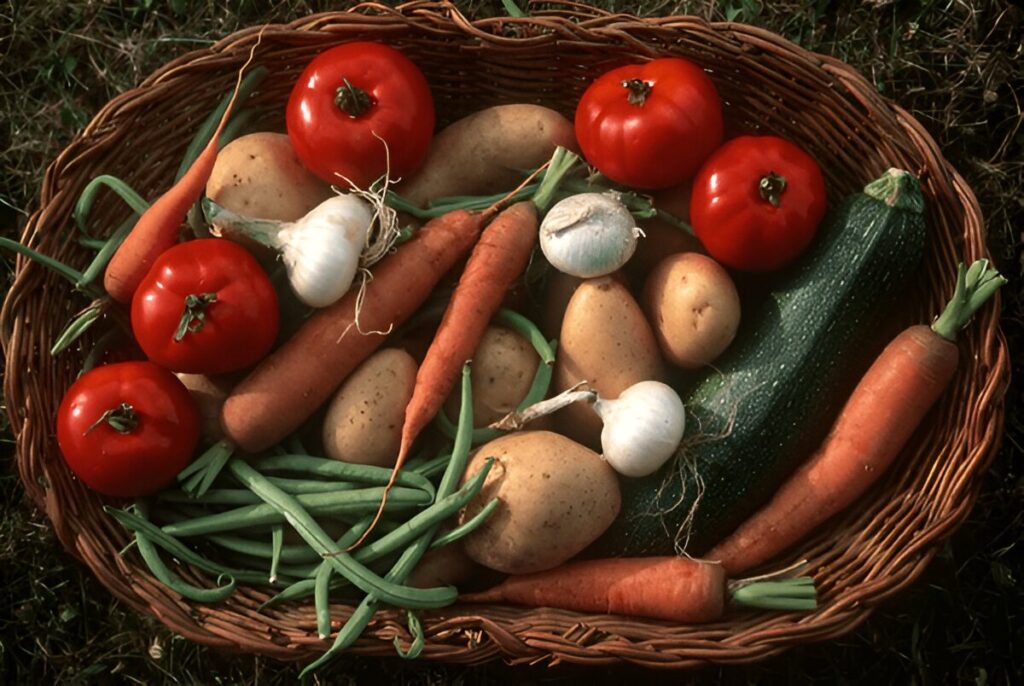
Thoroughly wash fruits and vegetables to remove any potential pesticides or harmful bacteria that may be on the surface.
High-Sugar and High-Fat Foods
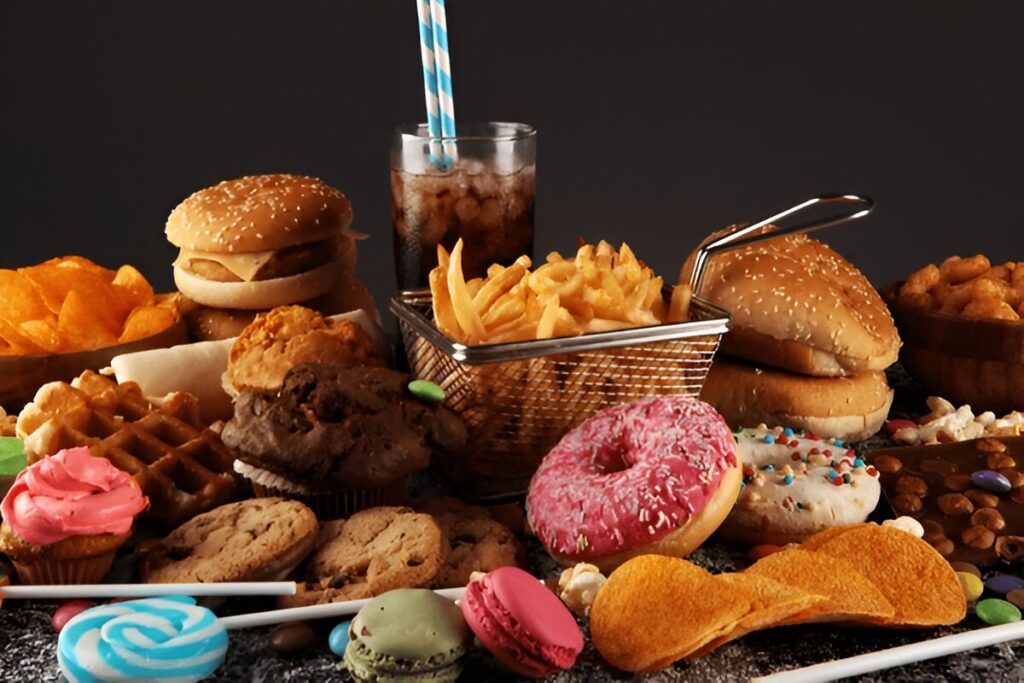
While occasional indulgence is okay, try to limit your consumption of sugary and high-fat foods to avoid excessive weight gain during pregnancy. For the best insights on avoiding junk food during pregnancy.
Artificial Sweeteners

Some artificial sweeteners like saccharin and cyclamate, should be used with caution during pregnancy. It is advisable to consult your healthcare provider about which sweeteners are safe.
Unwashed Herbs and Spices
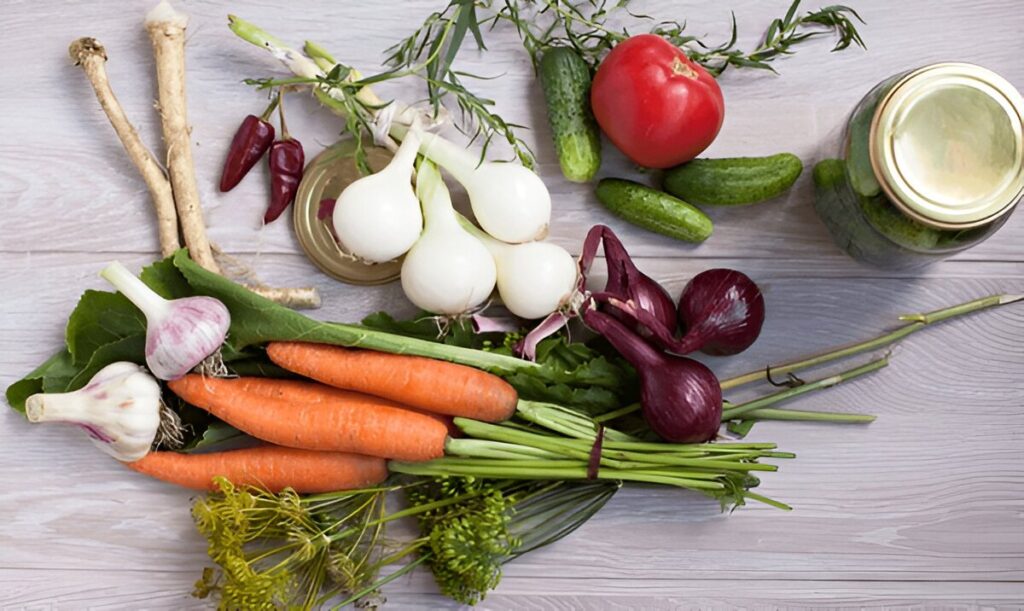
Make sure to wash herbs and spices thoroughly as they may carry bacteria or contaminants. Along with these general dietary tips, it is crucial to consult with your healthcare provider for personalized dietary guidance during pregnancy. This can help in creating a safe and healthy eating plan that is tailored to your specific needs and circumstances.
FAQs
How much tea can be consumed by pregnant women?
There are no restrictions on drinking tea by pregnant women. It is safe for them to have tea once or twice a day.
Which are the most beneficial fruits for pregnant women?
Some of the best fruits to have during pregnancy are apples, custard apples, pears, pomegranates, cherries, mangoes, oranges and watermelon.

